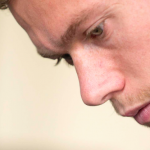Technologies in Practice is one of Scandinavia’s leading research groups at the intersection of IT and society. Based at the IT University of Copenhagen, we conduct qualitative studies of technologically mediated practices in organisations and everyday life.
The vast majority of societal challenges demand critical engagement with contemporary technologies.
Our interdisciplinary environment provides students and researchers with the resources necessary for analysing entanglements of the social and technical with and through IT.
News
PhD Course: New Ethnographic Methods for Technology Studies
On Tuesday October 27 11:00 – Thursday Oct 29 (13:00) TiP will be hosting a PhD course entitled New Ethnographic Methods for Technology Studies: Between the Field and the Desk. You can find below the details of the lecturers, readings, and how to apply. Organizers Christopher Gad, Marisa Cohn, Rachel Douglas-Jones Technologies in Practice & Ethos […]
Darrin Durant visits TiP
Darrin Durant, University of Melbourne, visits ITU on Monday 21st September. After having worked at York University in Toronto for many years, Darrin recently returned to his native Australia and is currently preparing to launch a new interdisciplinary Masters degree in science, technology and innovation studies in Melbourne. In addition, to scheduling meetings with participating teachers […]
TiP on Twitter
Tweets by @TiP_ituResearch
We are an interdisciplinary group, with a shared interest in qualitative studies of technologically mediated practices. Our work is funded by the Danish Research Council, European Union's Horizon 2020 program, Carlsberg Foundation, Innovation Foundation, Novo Nordisk and the Velux Foundation.
Teaching
We closely integrate our role as educators with our work as a research group. Our international faculty use insights from around the world in their teaching. Our teaching draws on disciplinary backgrounds such as information studies, history, anthropology, sociology, and critical computer science. We aim to help students address the critical questions arising at the intersection of society and technology.





